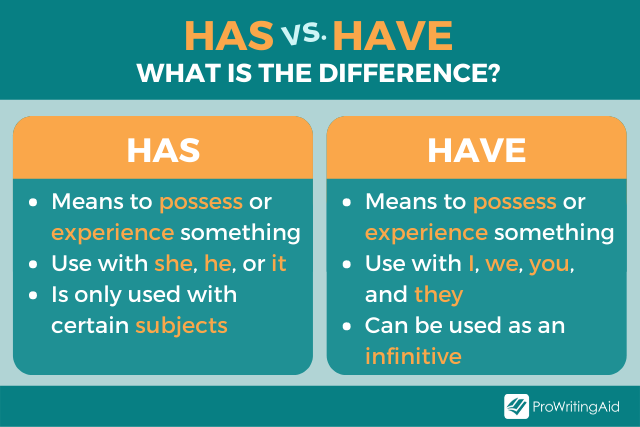There's a lot of talk, it seems, about people in the public eye, and sometimes, that curiosity can drift into very personal spaces. It’s a pretty common thing, you know, when someone becomes well-known, that folks just naturally want to know more about them. This kind of interest, in a way, can sometimes lead to questions that touch upon really private matters, things that are typically kept just between a person and their closest circle.
For athletes, particularly those who have stepped into the spotlight for various reasons, this level of public inquiry can feel, well, rather intense. The conversation around Lia Thomas, for instance, has brought up a whole lot of different topics, and among them are questions that reach into her personal life. It’s a situation that, arguably, brings into focus the delicate line between public interest and an individual's right to their own private world.
So, when a question like "has Lia Thomas had bottom surgery" pops up, it really highlights this very boundary. It makes us think about what we, as a society, consider fair game for discussion and what should probably remain personal. This article is going to explore some of those ideas, looking at the nature of public curiosity and the importance of personal space, especially when it comes to someone who finds themselves in the public eye.
Table of Contents
- Who Is Lia Thomas, Really?
- Lia Thomas - Personal Details and Background
- Why Do People Ask About Has Lia Thomas Had Bottom Surgery?
- What Kind of Information Is Private, Anyway?
- The Nature of Public Interest and Personal Space
- How Does Public Life Affect Personal Privacy, Particularly for Has Lia Thomas Had Bottom Surgery?
- Respecting Individual Boundaries in the Spotlight
- The Broader Conversation Around Transgender Athletes and Has Lia Thomas Had Bottom Surgery
Who Is Lia Thomas, Really?
Lia Thomas became a name many people recognized in the world of swimming, particularly during her time competing at the collegiate level. She made quite a splash, so to speak, in the sport, and her participation certainly got a lot of attention. Before her more widely publicized swimming achievements, she was, you know, a student athlete, just like many others. Her story really came to the forefront when she began competing on the women's team at the University of Pennsylvania, after previously being on the men's team. This shift, understandably, sparked a great deal of conversation and, in some respects, a lot of different viewpoints about fairness and inclusion in sports.
Her journey, like anyone's, involves various parts that make up who she is. She's been a student, a swimmer, and a person navigating her own path. The public's focus on her has often centered on her athletic performances and the discussions that arose from them. It's almost as if, once someone steps into that kind of bright light, every aspect of their being can become a subject of discussion, whether they want it to or not. That, in itself, is a big part of what we are looking at here.
She has, over time, spoken a little about her experiences, sharing some of her thoughts on being a transgender woman in competitive swimming. These shared moments give a glimpse into her perspective, but they don't, of course, cover every single detail of her life. The general public tends to form impressions based on what's available through news stories and interviews, which, frankly, are often limited in scope.
- How Many Grammys Does Christina Aguilera Have
- President Nikki Haley
- Skarsgard Family Tree
- Norman Reedus Style
- Clark County Family Court Clerk
Lia Thomas - Personal Details and Background
When we think about public figures, it's pretty common for people to want to know some basic facts about them. For Lia Thomas, here's a quick look at some general details that are out there.
| Full Name | Lia Catherine Thomas |
| Birth Year | 1999 |
| Birthplace | Pennsylvania, USA |
| Alma Mater | University of Pennsylvania |
| Sport | Swimming |
| Notable Achievement | NCAA Division I Women's 500-yard Freestyle Champion (2022) |
These are the sorts of facts that are generally shared and widely known about her. Beyond these public bits of information, like anyone, she has a personal life that isn't typically for public consumption. That, you know, is a very important distinction to make when we talk about people who are in the public eye.
Why Do People Ask About Has Lia Thomas Had Bottom Surgery?
It’s a curious thing, isn't it, how certain questions seem to stick in the minds of many? When it comes to someone like Lia Thomas, who has been at the center of a pretty big conversation about sports and identity, people often have a lot of questions. Some of these are about her athletic performance, while others, quite honestly, reach into very personal areas. The question about "has Lia Thomas had bottom surgery" is, in some respects, one of those deeply personal inquiries that pops up.
One reason people might ask such a question could be linked to a general lack of understanding about what it means to be transgender. There's a lot of misinformation or, perhaps, just a simple absence of knowledge out there about the experiences of transgender individuals, including their medical journeys. So, sometimes, questions like this come from a place of genuine, if perhaps misdirected, curiosity, trying to make sense of something new or different. It's almost as if people are trying to fill in gaps in their perception.
Another factor might be the way public discussions often unfold, especially online. When a person becomes a focal point for a broader debate, like the one around transgender athletes in sports, every aspect of their being can become subject to scrutiny. It's like, people feel entitled to every detail, even those that are not relevant to the public discussion at hand. This kind of intense focus can lead to very specific and, frankly, intrusive questions about a person's body or medical history.
Then there’s the element of media coverage. Sometimes, the way stories are presented can inadvertently encourage this kind of personal inquiry. When the focus is heavily on someone's identity in relation to their physical being, it can, in a way, invite speculation about their physical transitions. This is not to say that media intends to pry, but the nature of public discourse can sometimes lead to these very private questions surfacing in public forums.
What Kind of Information Is Private, Anyway?
When we talk about personal details, it’s worth considering what we generally mean by "private information." Things like our medical records, our financial situations, and our deeply personal relationships are usually considered off-limits for public discussion. This is a pretty basic idea, you know, that everyone has a right to a certain amount of personal space and control over their own story.
Medical information, in particular, is highly protected for most people. Think about it: when you go to the doctor, the details of your health are kept confidential. This is a cornerstone of medical ethics and privacy laws in many places. It's based on the idea that health information is very sensitive and should only be shared with your permission. So, any questions about specific medical procedures, like "has Lia Thomas had bottom surgery," fall squarely into this protected category.
Even for people who are widely known, this principle still holds true. Just because someone is famous or in the public eye doesn't mean every single detail of their life becomes public property. There’s a distinction between public interest in someone's work or achievements and a right to know every personal aspect of their existence. It's a line that, arguably, needs to be respected for everyone, regardless of their level of fame.
The boundaries of privacy can feel a bit blurry in our current world, especially with so much information available and shared online. However, the core idea that certain aspects of a person's life are theirs alone to share, if they choose, remains a very important principle. This includes, very much so, details about their physical body and any medical decisions they make.
The Nature of Public Interest and Personal Space
It’s a fascinating dynamic, this interplay between what the public wants to know and what an individual wishes to keep to themselves. When someone achieves a certain level of recognition, whether it’s in sports, entertainment, or any other field, there's a natural inclination for people to feel a connection to them. This can lead to a desire to know more, sometimes extending far beyond their public role. It's almost as if the line between their public persona and their private self becomes a little less clear in the eyes of some observers.
However, every person, no matter how famous, has a personal space, a private world that belongs only to them. This includes their thoughts, their relationships, and, very importantly, their health and bodily autonomy. The public's interest, while understandable in many contexts, doesn't automatically grant access to these intimate details. It’s a matter of basic respect, really, for another person’s boundaries.
The challenge often arises when a person’s public identity is tied to aspects that are also deeply personal, like gender identity in the case of Lia Thomas. This can, in a way, create a situation where the public feels their curiosity about personal matters is justified because it relates to the broader public discussion. But even then, the right to personal privacy, especially concerning medical choices, typically stands firm.
So, while it’s natural for people to be interested in the lives of those who capture their attention, it’s also, arguably, a sign of maturity and respect to recognize where that interest should stop. The space between public fascination and personal boundaries is one that we, as a society, are constantly navigating, and it often comes down to individual choices about what to share and what to keep private.
How Does Public Life Affect Personal Privacy, Particularly for Has Lia Thomas Had Bottom Surgery?
Being in the public eye, like Lia Thomas is, certainly changes things when it comes to personal privacy. It's like, suddenly, a lot more people are looking, and their opinions and questions become very visible. For public figures, the normal boundaries of personal space can feel a bit eroded, as their lives are often discussed and dissected in ways that ordinary people rarely experience.
When the question "has Lia Thomas had bottom surgery" comes up, it highlights this erosion. It’s a very intimate question, and for most people, such a detail would never be a topic of public conversation. But because she is a public figure, and because her identity has become part of a larger societal debate, these deeply personal inquiries sometimes surface. This is not to say it’s right, but it is, in some respects, a consequence of intense public scrutiny.
The internet and social media, too, make it easier for these kinds of questions to spread quickly and widely. What might have once been a private thought or a hushed conversation among a few people can now become a viral topic, discussed by thousands, or even millions. This means that managing personal privacy in the public sphere is a whole different ball game than it used to be. It's like, every detail, even one that is completely private, can be brought into the light.
Public figures often have to make difficult choices about what they reveal and what they keep to themselves. Sometimes, they choose to share aspects of their personal lives to educate or to advocate. Other times, they choose to keep things private, asserting their right to personal space. For questions like "has Lia Thomas had bottom surgery," it's very much in the realm of information that an individual typically chooses whether or not to disclose, regardless of their public standing.
Respecting Individual Boundaries in the Spotlight
It’s pretty clear that everyone, no matter who they are or how famous they might be, has a right to their own personal boundaries. This means deciding what information about themselves they want to share with the world and what they prefer to keep private. For people in the public eye, this can be a tougher challenge, as there's often a strong pull from the public to know more, sometimes about things that are deeply personal.
When we think about someone like Lia Thomas, who has been the subject of much discussion, it's really important to remember that she is, first and foremost, a person. And like any person, she deserves to have her private life respected. This includes, very much so, details about her medical history or any personal decisions she has made regarding her body. It's not information that is typically relevant to her public role as an athlete.
The act of asking or speculating about someone's private medical procedures, such as "has Lia Thomas had bottom surgery," can feel, arguably, like an invasion of that personal space. It shifts the focus from their public contributions or achievements to intimate details that are not for public consumption. This kind of inquiry can be, frankly, quite uncomfortable and unnecessary.
So, as observers, it's good practice to consider what information is truly relevant to public discourse and what is simply private. Choosing to focus on a person's public actions, their contributions, or their role in a broader conversation, while leaving their personal medical history alone, shows a lot of respect. It’s a way of acknowledging their humanity beyond their public image.
The Broader Conversation Around Transgender Athletes and Has Lia Thomas Had Bottom Surgery
The discussion around transgender athletes in sports is, you know, a very complex one, involving many different viewpoints and considerations. Lia Thomas's participation has certainly brought this conversation to the forefront for many people. This broader talk often includes topics like fairness, inclusion, and the rules that govern sports. However, it’s important to recognize that this larger discussion about policy and participation is separate from an individual's private medical details.
While some might link questions about "has Lia Thomas had bottom surgery" to the broader debate about transgender athletes, the two are, in fact, distinct. The rules and policies for sports organizations typically focus on factors like hormone levels or other physiological markers, which are usually determined through medical assessments that are kept confidential. An athlete's specific medical procedures are generally not part of the public criteria for participation.
It’s almost as if, in trying to understand the broader implications of transgender athletes in sports, some people reach for very specific and private details about individuals. This can, in a way, detract from the more substantive policy discussions and instead focus on personal aspects that are not, arguably, relevant to the rules of competition. The conversation should ideally center on equitable frameworks and scientific understanding, rather than individual medical histories.
So, while the topic of transgender athletes is a valid and important one for public discourse, it's crucial to ensure that the conversation remains respectful of individual privacy. Focusing on an athlete's personal medical history, like asking "has Lia Thomas had bottom surgery," shifts the discussion away from the policy issues and into an area that is deeply personal and, frankly, not for public consumption. The goal, after all, should be to have a fair and informed discussion about sports, not to pry into private lives.
- Miami Dolphins Football Team
- Saeko Yu Darvish
- Emily Ratajkowski Films
- Ryan Grantham Age
- Sadhguru Isha Yoga



